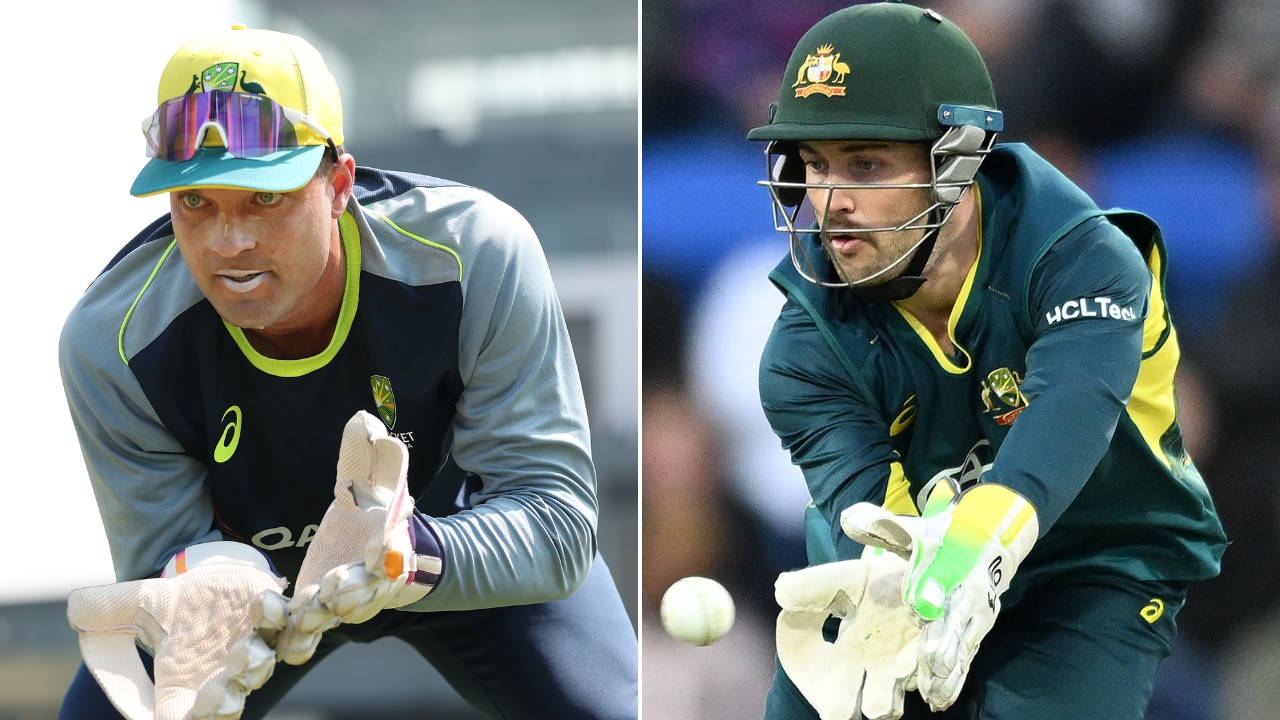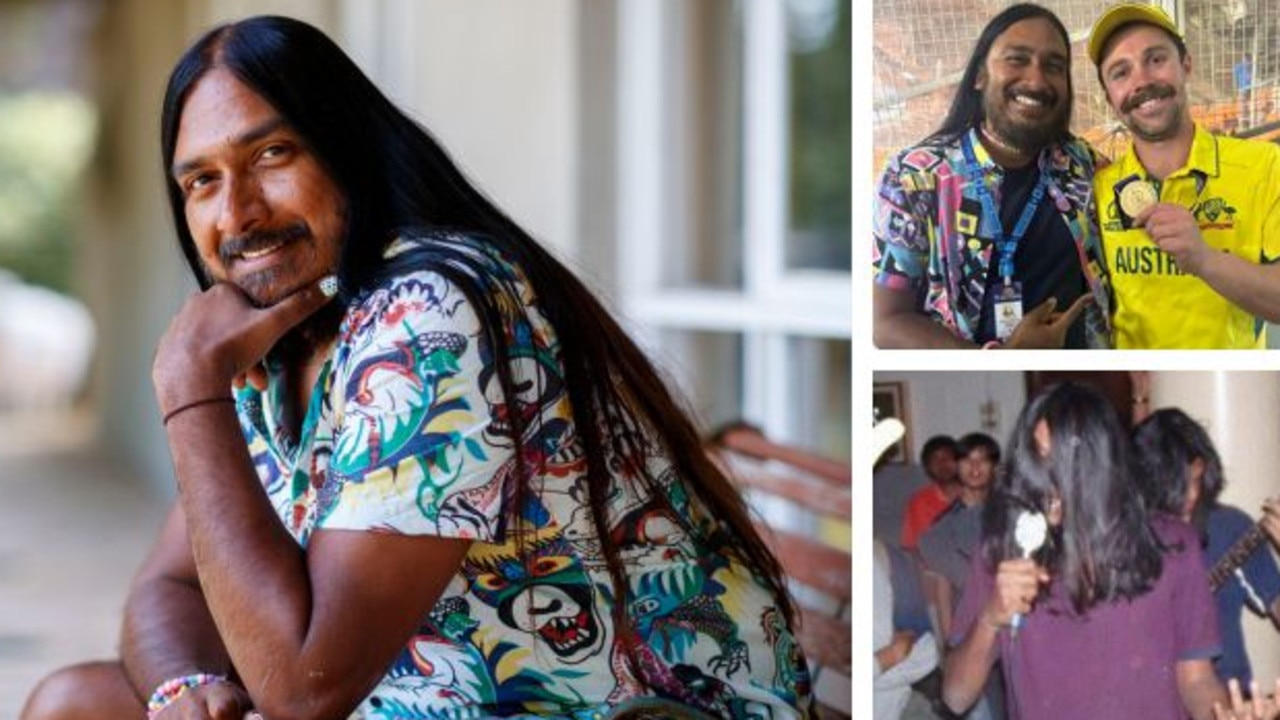Runs, the Ryder, regrets, Red Hill: Simon Dart opens up on long cricket career
At age 47, Simon Dart continues to churn out runs and take wickets for Red Hill in local cricket. He just wishes he’d done more for Victoria, believing he was unfulfilled at first-class level.
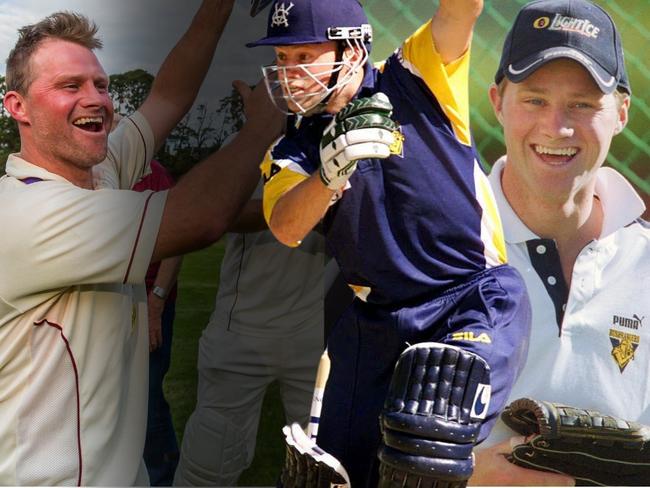
“Top up.’’
As coach of Red Hill on the Mornington Peninsula, Simon Dart told his batsmen to make the most of their form.
Don’t trifle with it. Don’t take it for granted. Covet it. When you’re in it, stay in it.
“I say to them, ‘When you’re seeing them well, top up, just keep topping up the runs’,’’ Dart says.
Twenty years ago, he did just that.
Playing for Hawthorn Monash University, Dart produced one of the great seasons in Victorian Premier/District Cricket, hitting 1098 runs.
Neat with his strokes and nimble on his feet, the right-hander became only the fourth player to take his aggregate into four figures, joining one of his former Melbourne teammates and touchstones, Warren Ayres.
Dart’s rewards were substantial: he won the Jack Ryder Medal with 43 votes and landed a second Victorian contract.
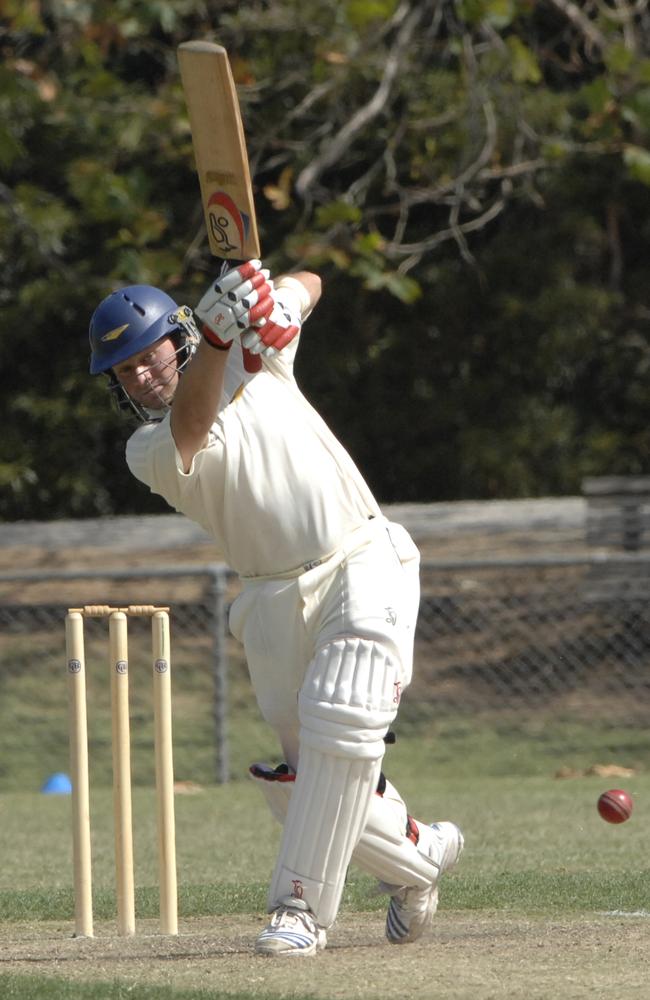
“I just remember the thirst and the want and the challenge of replicating it every game you walked out,’’ Dart says of his run of big scores.
“I felt like I was in a zone, feeling at peace at the wicket. I did a lot of work off the ground – that’s what I say to a lot of juniors now, do the stuff other people don’t see – and when I met the game, I was in auto-pilot, I felt comfortable and I’d got that little person off the shoulder. I went out and showed off my skills.’’
Dart was then 27. His supporters at both Hawthorn-Monash University and his previous club, Melbourne, hoped he could break into Sheffield Shield cricket after his earlier appearances in Victoria’s one-day team.
But it wasn’t to be and when Dart reflects on his career, he says he should have achieved more in state cricket.
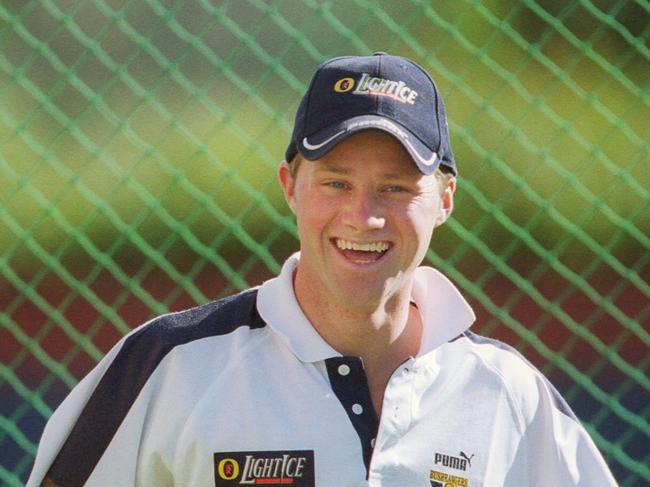
“There’s a part of me that’s unfulfilled,’’ he says.
“I should have played a lot more cricket at that higher level. I would have thrived in that environment. Selection, politics, personalities, who they wanted really, sort of held me back.
“Like Warren Ayres and many others … they have stories about why they didn’t play as much as they should have. It is what it is. That’s why I’m probably still playing. There’s something burning inside me, driving me each day, that want to get better and better. It’s still there, that feeling of being unfilled. It’s motivation. Unfortunately I’ve had to punish a few Mornington Peninsula attacks to satisfy the itch as such.’’
*****
At age 47, Simon Dart is still “topping up’’.
Look up the leading performers in the Provincial grade of the Mornington Peninsula this season and you’ll find him on top of the batting with 494 runs at an average of 98.8 and second on the bowling with 23 wickets at 12.
He hit 169 in one match and grabbed 6-15 in another.
Dart joined Red Hill in 2012-13, started with centuries in his first two innings, and has performed brilliantly and consistently, lifting the club from the bottom section, Sub-District, to Provincial, the highest grade.
In the 2016-17 grand final, the Hillmen had to chase 307. They got there, with Dart crafting 133 not out, batting almost 100 overs.
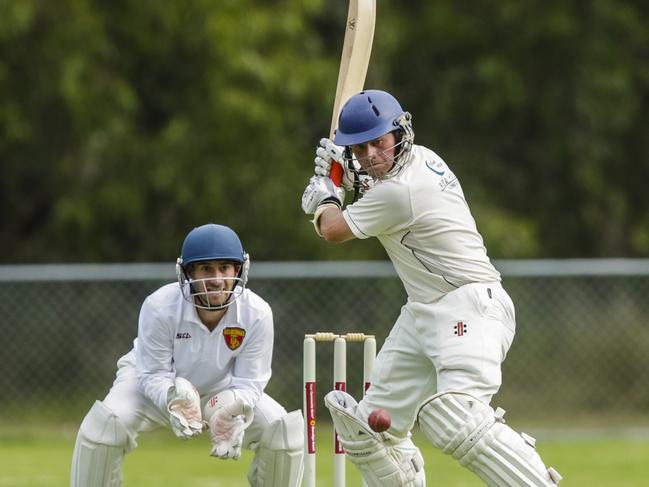
Three years earlier he made a century in another decider. He is a batsman for a big occasion.
Last season the Hillmen won their first Provincial flag, the culmination of a plan he put in place when he joined Red Hill after moving to Rosebud.
Glenn Collett was coaching the Hillmen at the time and had played with Dart at Hawthorn, giving the club the inside running for his signature.
He now stands at its greatest player – last season he was named captain in its team of the century – and can be included in any discussion about the best cricketers seen on the Mornington Peninsula.
Collett says Dart’s contribution to Red Hill has been “just incredible’’.
“Not just with the runs and the wickets and his fielding,’’ he says.
He recalls a night when Dart was nowhere to be seen after training. Those left at the club thought he’d gone home and started locking up.
“But here he was in the back room putting together a thirds and fourths kitbag,’’ Collett says.
Noting that Dart hasn’t been dismissed this year, he adds: “He’s just getting better with age.’’
*****
The Dart family had a holiday house on the southern peninsula and a young Simon Dart played cricket on the beach and on the vacant block next door.
“That’s where I got my love of the game,’’ he says.
But tennis was his “ultimate love’’. He was a prominent junior, gaining a national top-10 ranking as an Under 14 and once defeating Lleyton Hewitt in Adelaide. Peter Luczak was one of his doubles partners.
His mother, Brenda, had also excelled in tennis.
His father, Charles, was an accomplished cricketer, playing in two premierships with Melbourne in the 1970s.
Dart began to take his cricket more seriously when he was 15. He joined his father’s old club and rose quickly, reaching the First XI when he was 17.
What a grounding: he played alongside the likes of Dean Jones, Brad Hodge and Ayres.
“That’s where I learnt my cricket, watching Jones and Ayres and all those guys batting,’’ he says.
“I remember in ’97-98 I didn’t bat for the whole of November. I was at No. 5 or 6 and we were two or three down for 300. I watched how they built their innings, how they went through flat spots, how they got momentum, how they placed the ball, their game awareness. It taught me how to bat, what was in front of me and how to prepare for the opportunities ahead.’’
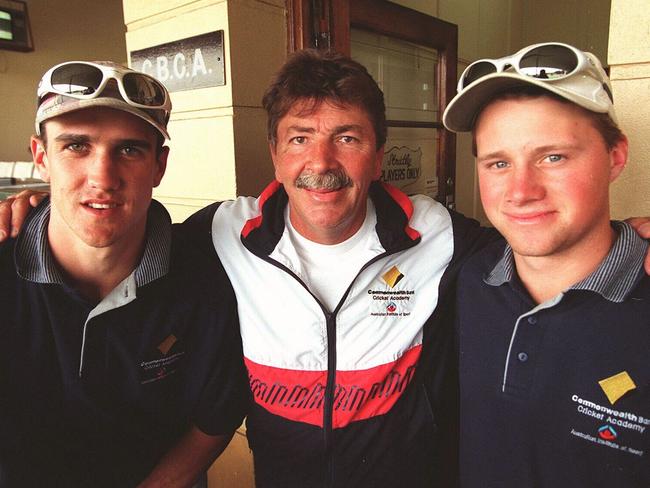
Dart represented Victorian under-age teams, took a scholarship at the Cricket Academy and was named vice-captain of the Australian Under 19 side.
With Allan Border as coach, the young Australians toured Pakistan in 1997. Dart was man-of-the-match in the first “Test’’ at Karachi, scoring two half-centuries.
“It was an amazing experience. We had some amazing talent under our umbrella,’’ he says. Brad Haddin was his captain and Marcus North, Michael Klinger and Mathew Inness among his teammates.
Victoria gave him a Mercantile Mutual Cup debut against Tasmania at the MCG in 2000-01. He remembers it for the fact that Ricky Ponting sledged him. “What the hell are you doing here?’’ he asked the newcomer.
“I hit a cut shot beautifully at the ‘G and it skipped off the wickets and got stopped backward of point,’’ Dart says. “I knew I was in the big leagues then when he (Ponting) clunked it with one hand. It was another level but I thrived in it. For me, everything was put on for you. No excuses. Pure conditions. You could see the ball beautifully. It was a challenging, thriving environment, playing with some amazing cricketers, Reiffel, Fleming, Berry, Hodge. I could keep going.’’
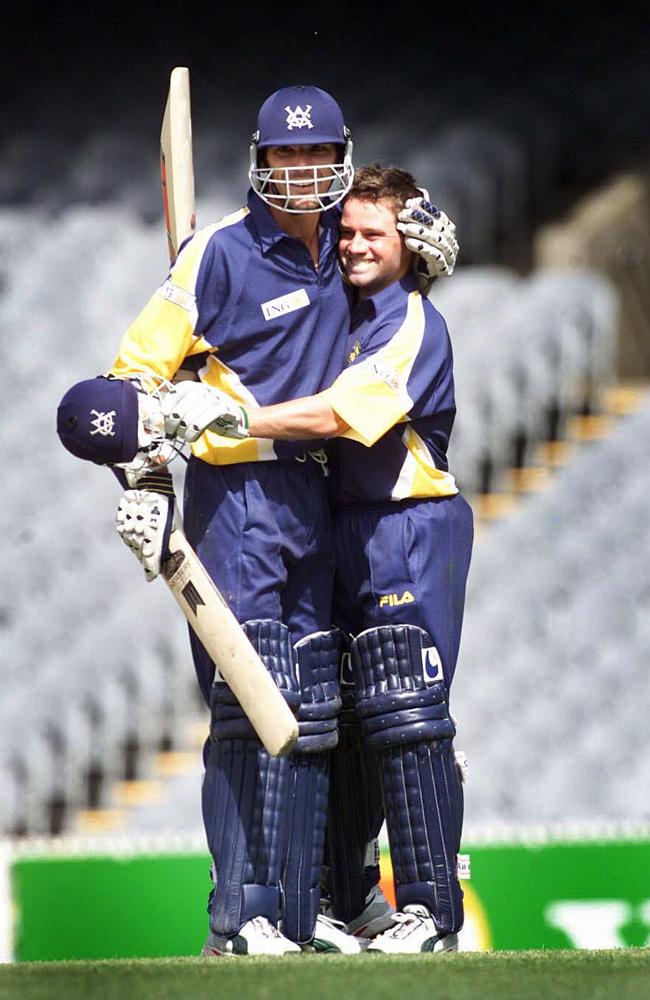
Twelve months later, he was selected to debut for Victoria in the Sheffield Shield.
But he never made the trip to Perth. Playing for Hawthorn-Monash University in a Premier Cricket country round, he had his hand broken by Camberwell Magpies paceman Sean Pietersz at Wangaratta. In all respects, it was a bad break; it was the closest he got to a Shield game.
Dart had joined the Hawks in 1999-2000.
He felt at home with Melbourne, but, he says, he might have become too comfortable.
“It was more about challenging myself not to have it easy,’’ he says.
“Because that’s what Melbourne can be. It can be a very comforting environment. But when it’s at its best, it’s ruthless, it’s got its work ethic. If I was the next coach of Melbourne, that’s what I’d bring to the table, that edge. Because they’ve got all the talent in the world.’’
As a Hawk, Dart was a prodigious performer, averaging a tick under 50 and cracking 14 tons and 6349 runs.
Two years after his run-drenched, Ryder-winning 2004-2005, he had another bumper season, weighing in with 846 runs at 60.43.
Still, state chances continued to elude him.
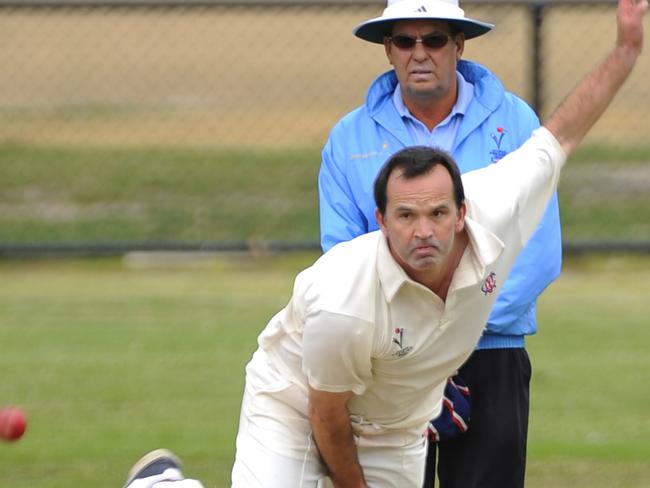
Returning to Melbourne in 2009-10, he was again a premiership player. He’d also been part of the Demons’ 1997-98 flag.
“It almost felt like I’d transferred to Hawthorn on loan,’’ he says.
Test man Adam Dale was coaching the Dees when he went back.
Dale says Dart was as talented as any player he played club cricket with and he was “definitely good enough’’ to play regular first-class cricket.
“Talent-wise, skill-wise, form-wise, he warranted selection, no question,’’ he says.
“But you’ve got to remember that Victoria were a pretty strong side back then … the middle-order at that time was quite strong and he was going to have to dislodge someone. In my eyes he always deserved those higher honours.’’
Dale says timing wasn’t Dart’s friend “but he definitely had the ability for it’’.
When Dart packed up and headed for his new home at Rosebud, he left Premier Cricket with 261 matches (102 with the Demons, 159 with the Hawks), 8950 runs and 17 centuries. There were also 162 wickets at 28.27.
“I reckon I could have played grade cricket into my early 40s,’’ he says.
“I reckon I could still play now. I reckon I could have broken records. But the pull for me was moving down here (southern peninsula) and setting up home and setting up a family. I haven’t looked back. I’ve loved the community and the lifestyle.’’
*****
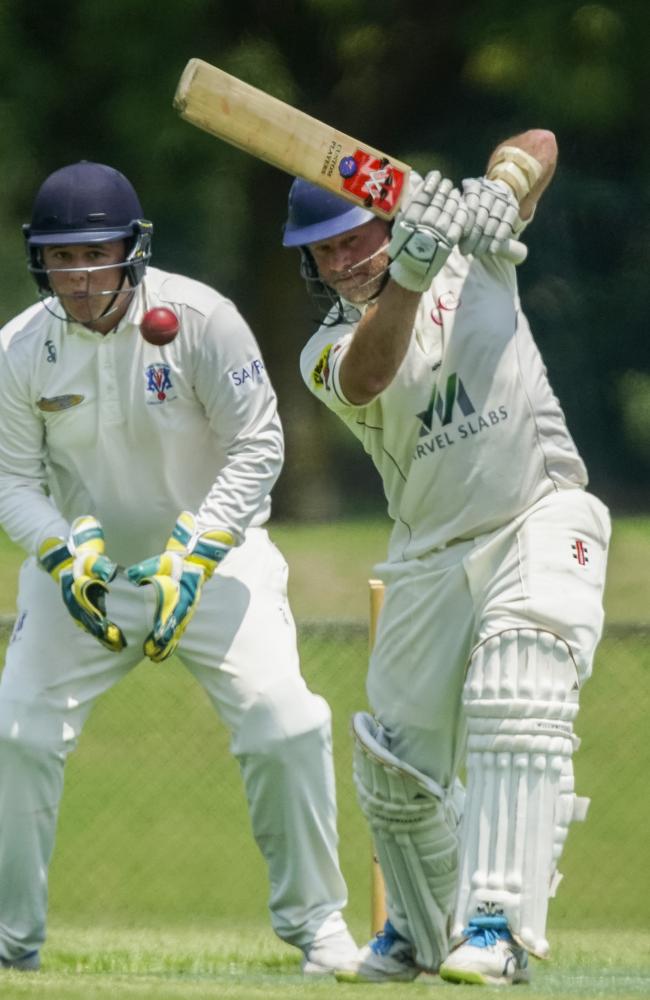
Simon Dart says he has been playing local cricket for so long that some people have forgotten he played Victorian Premier Cricket.
“They think I just rolled up to Red Hill and that’s it,’’ he says with a laugh.
When he settled on the Mornington Peninsula, he knew none of the cricket clubs and had to find one. Collett came calling. Red Hill appealed to him because it had some young players who wanted to improve and the club aspired to move up the grades.
Thirteen years on, it has won every competition. Dart’s contribution has been 16 centuries. In making 169 against Old Peninsula this season, he became Red Hill’s greatest run scorer. He is closing in on 8000 runs and 200 matches.
“He’s just a class act, he’s unbelievable,’’ Old Peninsula mainstay John Forrest told the local press. “The older you get, you appreciate good cricket and I talked to our batters around what they can learn from someone like him who’s been so good at it for so long. He’s the best I’ve seen in our comp, especially over a period of time.’’
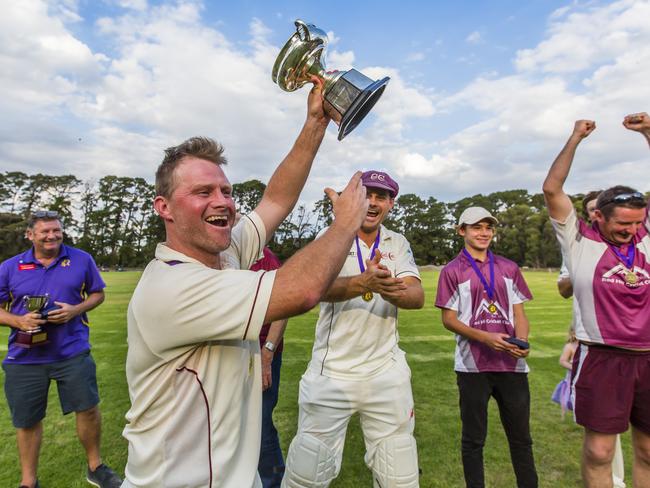
Dart says he wanted to set up a “mini-Melbourne’’ at Red Hill.
“The ultimate aim was to build a club that my daughter (Jemima) or my son (Freddie) would feel comfortable walking into and playing cricket for,’’ he says.
“It’s been a journey. I thought we were going to move up the grades very quickly. It took time. It was very fulfilling. It’s been wonderful to see people grow in front of your eyes and develop and enjoy their cricket. We built the layers, we built the belief, we built the game plan.’’
He calls the MPCA “weekend warrior cricket’’.
But it is not a Ponting-at-the-‘G sledge.
“It’s a different type of cricket,’’ he says. “Everyone takes it very seriously. They love the game and nothing’s handed to you.’’
Dart was captain and coach for 10 years. He’s now eased back into the playing ranks at a club he regards as “extended family’’.
But his message to his teammates hasn’t changed. “Top up,’’ he tells them.




